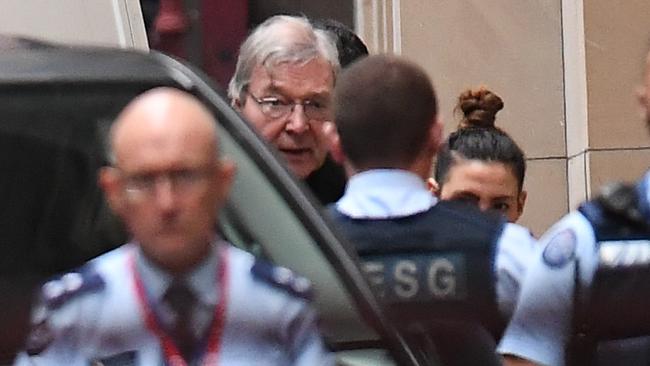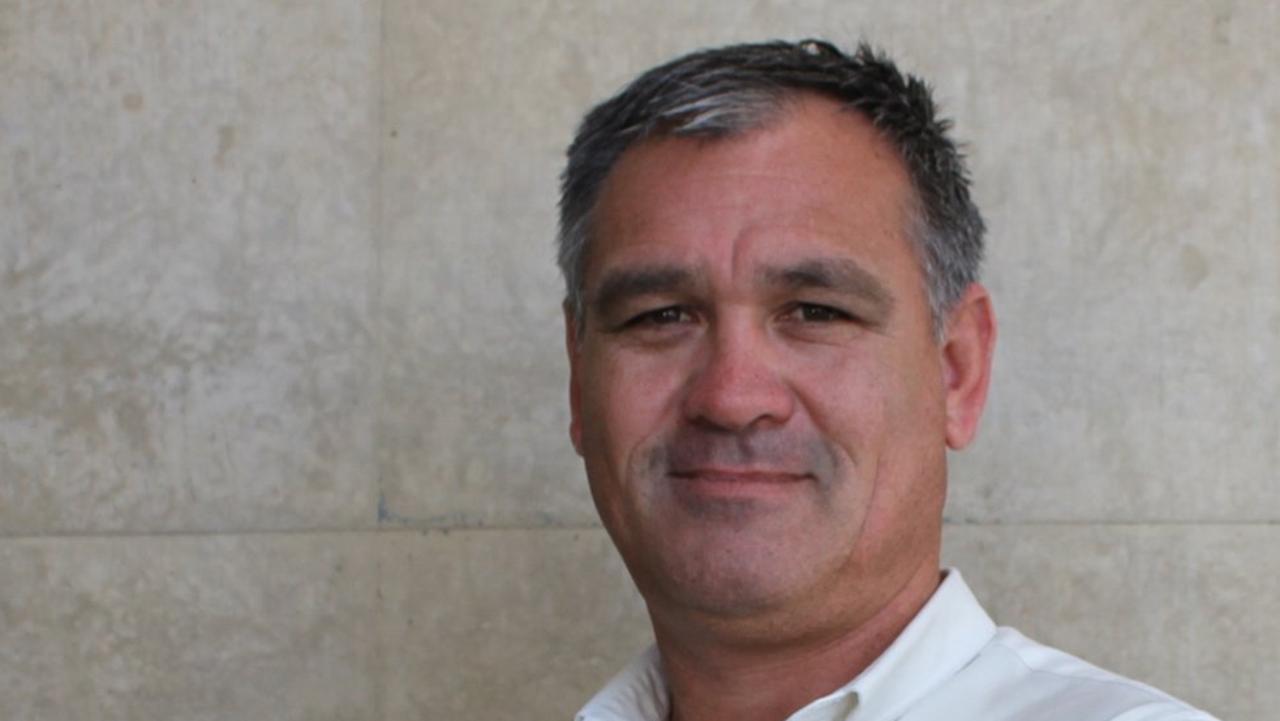Pell’s jury erred on 13 counts, says silk
The jury that found George Pell guilty erred on 13 points, the Victorian Court of Appeal heard.

The jury that found George Pell guilty of child sex offences erred on 13 key points when deliberating, including the “impossibility” of the cardinal removing his ceremonial robes in the course of a sex act, the Victorian Court of Appeal has heard.
On the first day of Pell’s two-day appeal against his convictions for the sexual penetration of a child under 16, and four counts of indecent act with a child, the cardinal’s lawyers told the court it was “unreasonable” for the jury to accept that he had been in the sacristy at Melbourne’s St Patrick’s Cathedral for long enough for the offences to have occurred.
Pell’s legal team filed submissions with the court, arguing there were 13 “solid obstacles” that should have prevented the jury convicting the cardinal. In written submissions, Bret Walker SC, taking over from Pell’s trial barrister Robert Richter QC, claimed more than 20 prosecution witnesses gave evidence that was improbable or realistically impossible.
“This evidence constituted a catalogue of at least 13 solid obstacles in the path of a conviction,” the submissions said.
The first incident involved Pell abusing two choirboys in the priests’ sacristy at St Patrick’s in 1996 following a Sunday mass.
Supreme Court Chief Justice Anne Ferguson, one of three judges ruling on the appeal, asked Mr Walker to explain the argument about whether Pell could have exposed himself in his ceremonial robes.
The court heard that the complainant had claimed Pell moved his robes to the side, which Mr Walker said was at odds with the evidence of the robes themselves.
Full ceremonial robes for the then archbishop of Melbourne consisted of an alb, an ankle-length tunic with no opening down the front, that was tied in place with a cincture and a chasuble, a knee-length over-robe, like a poncho.
“Whatever moving to one side means … it would not expose any part of the body,” Mr Walker said. “Incidental to that proposition are matters of physical improbability to the point of impossibility of the simple pulling aside of those robes in order to commit the alleged atrocious acts.”
Mr Walker told the judges that witnesses gave “strong, credible and undispelled” alibi evidence that Pell often greeted parishioners at the cathedral’s western door after mass.
“If he was at the western door at the time when, on the complainant’s account, the offending must have been occurring … then the law of physics tells us this is literally and physically impossible for the offending to have occurred on the complainant’s account — and there is no other account,” he said.
Judge Mark Weinberg queried the tactics of Pell’s original legal team and their labelling of the offending as “impossible”. He said it was “unfortunate” in some ways that the case was pitched at the level of impossibility and that term used repeatedly.
“One understands rhetorically why that may have been done,” Justice Weinberg said. “But it’s quite misleading in lots of ways, it seems to me.”
Justice Weinberg said there was a risk of the jury deciding for the prosecution if it determined the allegations were not impossible.
Instead, Justice Weinberg suggested, Mr Richter might have described the circumstances of the allegations as “inherently improbable”.
Mr Walker himself used the word “impossible” when talking about the second choirboy, who died in 2014, and his denial of abuse to his mother.
“It’s impossible for that answer to be true and the complainant’s account of the first episode also to be true,” Mr Walker said.
He said that, if the second boy were alive, prosecutors would have to cross-examine the boy with the proposition that he had been abused.
“The level of social responsibility involved in a prosecutor putting that kind of suggestion to a person is something that would no doubt receive anxious consideration in crown chambers,” he said.
Lawyers representing the second victim’s father said the fact the man denied he had been abused to his mother did not mean he was not abused.
“The argument we are hearing again today about our client’s son not telling anyone what Pell did to him holds little persuasion,” said Lisa Flynn, Shine Lawyers’ abuse law expert, in a statement.
“It is not unusual to deny abuse, particularly to parents. Many survivors find it impossible to tell their parents, their beloved mum or dad.”
Prosecutor Chris Boyce SC will respond today.
Additional reporting: Remy Varga


